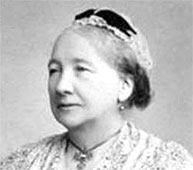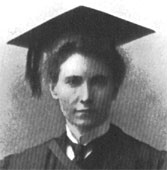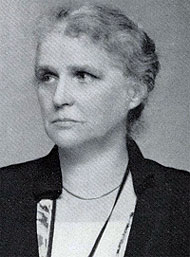Women
Achievements
The following achievements are associated with this Theme:
Contributing to the Scottish literary renaissance of the early 20th century
Scottish author, biographer and journalist, Catherine Carswell is now known as one of the few women who took part in the Scottish Renaissance. Her works are still widely read today.
Creating the Historical Thesaurus of the Oxford English Dictionary
The Historical Thesaurus is the first ever produced for any language in the world, containing almost every word in English from Old English to the present day.
Development of speech therapy
Anne McAllister was a pioneer and international leader in the development of speech therapy.
Discovery of Isotopes
The value and use of isotopes in research and their importance in technology and applications to society today would have astounded Soddy.
Discovery of pulsars
The discovery of pulsars, cosmic sources of peculiar radio pulses, provided the first direct evidence for the existence of black holes and is an important milestone in the history of astrophysics.
Established a major marine research centre at Millport on the Firth of Clyde
Sheina Marshall, established Scottish Marine Biological Association Millport, as a major research centre, as a result of a series of twelve seminal papers on plankton.
Evidence against the use of organ transplantation from melanoma patients
Rona Mackie’s work on melanoma has been highly received across the world, and in the field of transplantation has influenced practice with former melanoma patients in Europe and North America.
First experimental demonstration that maternal condition of birds can manipulate the sex ratio of their offspring
This study was the first experimental demonstration that females could adjust the sex ratio of the eggs they produced in response to environmental circumstances.
First female chair of Dermatology in the UK
Rona Mackie became in 1978 the first female Professor of Dermatology in the UK, and within the University of Glasgow, the first woman to be appointed to an established chair.
First female Professor of Dentistry in the UK
In 1990, Dorothy Geddes became the first female dental academic to take up a professorial position in the UK.
Influencing social reform in the 1960s and 1970s
As a champion of causes that were unfashionable in the 1960s and 1970s, Kay Carmichael influenced society's attitudes to gay rights, prison reform, and the decriminalisation of prostitution.
Key discoveries of the life cycle of Trypanosomes
African trypanosomiasis remains endemic in central Africa today. The parasites invade the central nervous system and brain, where they cause many neurological symptoms, including disruption to sleep-wake patterns, which have led the disease to be referred to as sleeping sickness.
Leading administrator of women's university education
As the most senior woman academic in Scotland, Frances Melville was an astute administrator and ambassador of women's education.
Leading literary criticism
Janet Spens was one of leading literary critics of her day, specialising in Elizabethan literature.
Leading obstetrician and gynaecologist
Louise McIlroy was a pioneering female medical professional who specialised in obstetrics and gynaecology and received many distinctions and awards in recognition of her work.
Leading research in the fields of Roman archaeology and numismatics
Anne Robertson's reputation in the two areas of academic study - archaeology and numismatics - was achieved while also maintaining high standards of museum curatorship and public engagement.
Leading the study of Scottish Carboniferous Goniatites
Currie's primary research interest was in the field of palaeontology in which she published a number of academic works.
Minister of Pensions and National Insurance 1964-1967
Instrumental in removing the discretionary National Assistance payment scheme and introducing Supplementary Benefit.
Pioneering the University education of women in Scotland
The Glasgow movement to establish the right of women to a university education and the establishment of a means to deliver it was led by Jessie Campbell, administered by Janet Galloway and financed by Isabella Elder.
Pioneering work for the rights of those with mental health issues
Kate Fraser used her unrivalled knowledge and understanding of the social implications of mental health to ensure that the mentally ill were included in the provisions of the Disabled Persons Employment Act 1944.
Introduction
Glasgow University was the scene of many significant achievements in the campaign for women's access to higher education. An informal series of lectures for women by members of the University's staff had been in existence since the 1860s, largely at the instigation of Jessie Campbell, and this initiative led to the establishment of the Association for the Higher Education of Women, chaired by Glasgow University's Principal, John Caird. The secretary was Janet Galloway.
As a result of strong support from certain members of Senate, notably Edward Caird and John Nichol Queen Margaret College was opened in 1884. Separate teaching accommodation in the former North Park House, about half a mile from the 'new' campus at Gilmorehill, had been made possible by a generous gift from Isabella Elder in the previous year.
The QMC Medical School opened in 1890, and women students were formally integrated into the University in 1892. The first graduates in 1894, Marion Gilchrist, Alice Lilian Louisa "Lily" Cumming (m. Robson), Elizabeth Dorothea Lyness (m. Smith) and Margaret Cochran Dewar were among the first women in Scotland to gain a University degree and were the first to receive a university medical qualification MBCM. Both Gilchrist, who specialised in ophthalmology, and Lyness, whose interests lay in child care and public health, were ardent suffragists. Lyness was imprisoned for 8 months for fire-raising and Gilchrist campaigned vigorously for the promotion of women in the professions. Many of the early medical graduates went on to distinguish themselves during the First World War, including Anne Louise McIlroy, Katherine Stewart MacPhail, who founded the first children's hospital in the former Yugoslavia, and Honoria Somerville Keer, who was Assistant Medical Officer in Serbia and Macedonia.
In 1895, Isabella Blacklock became the first woman to graduate in Arts, and three years later, Ruth Pirret, subsequently a research student with Frederick Soddy, was the first woman to be awarded a BSc. Janet Spens was the University's first woman D.Litt (1910), and together with Agnes Picken, who became tutor in Science and Medicine to the QMC students, was one of the first to be appointed to the University staff, in the Department of English Literature.
Other Faculties caught up fairly rapidly. Mary Campbell Biggar, (m. Gordon) (Dip Ed 1904) was the first woman and fourth awardee of a Diploma in Education; Madge Easton Anderson (BL,1919) was the first woman graduate in Law, and first woman to be admitted to the legal profession in the United Kingdom following the passing of the Sex Disqualification (Removal) Act in that year. Marion Stewart (MRCVS 1930) was the first woman to be registered at a veterinary surgeon in Scotland. Lucy Agnes Carter, (Sister (Bernardine of Jesus of the Order of Notre Dame) was the second person, first woman to be awarded a PhD, with her research into protozoology.
The 1970s saw the appointment of a number of women to personal professorships; Delphine Parrott (Bacteriology and Immunology, 1973); Anne Robertson (Roman Archaeology, 1974); Joy Tivy (Geography, 1976) and Eva Schaper (Logic, 1977).The University first appointed a woman to an established chair in 1978, when Rona Mackie became Professor of Dermatology.
In 1999, Professor Andrea Nolan of the Faculty of Veterinary Medicine became the first woman Dean of Faculty, and the first woman Vice-Principal in 2004, and Deputy Vice-Chancellor in 2009.




